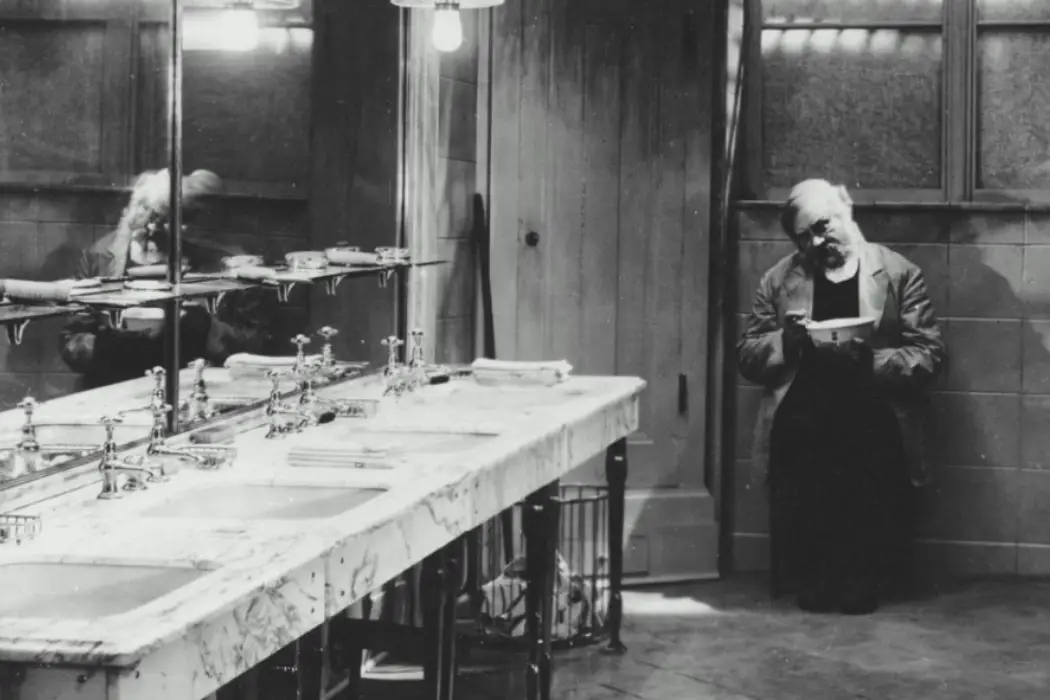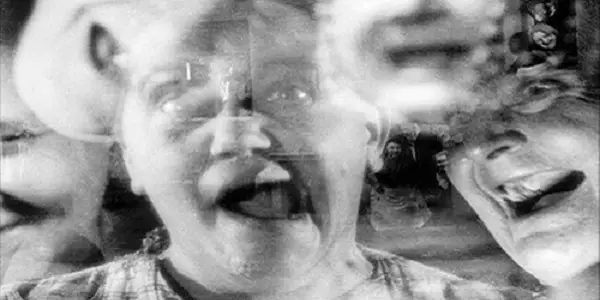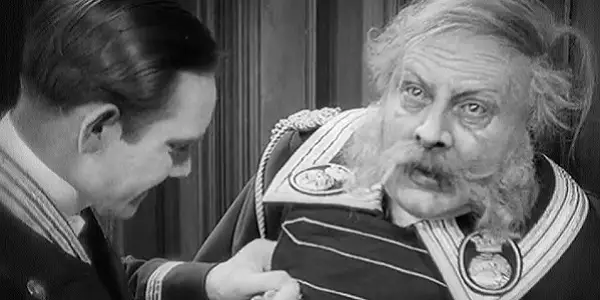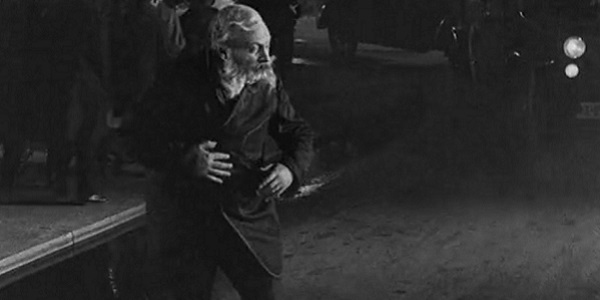THE LAST LAUGH: Welcome To Weimar Cinema

Lee Jutton has directed short films starring a killer toaster,…
If you, like so many of us around the world, have been stuck inside your home for weeks on end as a result of the coronavirus pandemic, you probably miss being able to go out to the movies, to sit in the darkness surrounded by fellow cinema lovers waiting to discover a new story on the big screen. Fortunately, the streaming services of the world have our back. From the Criterion Channel to Netflix, Sundance Now to Shudder, it is so easy to watch a wide variety of movies from the comfort of your home and to escape from the craziness of our current world through the power of cinema.
One such streaming service, Mubi, is kicking off the month of May by featuring a curated selection of films from one of my favorite periods in cinematic history: Weimar Germany. The brief period of time between the end of World War I and the Nazis’ rise to power was one of great artistic outputs in Germany across a variety of mediums, and none more so than the relatively new art of motion pictures. Many are familiar with the German Expressionist classics that arose from this period, such as F.W. Murnau’s Nosferatu and Robert Wiene’s The Cabinet of Dr. Caligari, but Mubi’s little collection of films shows that there was much more variety in the movies coming out of the Weimar Republic than your average cinema studies class would lead you to believe.
Rather than release the films all at once, Mubi is releasing their Weimar Germany collection slowly throughout the month of May. The first film to become available is another F.W. Murnau classic, this time one of striking, working-class realism starring one of the era’s greatest actors. It’s both an ideal way to introduce yourself to the era if you’re a newbie and a wonderful way to reacquaint yourself with the work of one of the greatest directors of all time if you’re already a fan of silent cinema.
Grand Hotel
Released in 1924, The Last Laugh (the German version of the title, Der Letzte Mann, actually translates to The Last Man) tells the story of an elderly hotel doorman played by Emil Jannings. The doorman takes great pride in his job; he comes from a poor neighborhood, but every day when he dons his hotel uniform and goes to work, he finds himself able to leave his lower-class origins behind as he hobnobs with the hotel’s upper-class clientele. However, his happiness is erased in an instant when the hotel demotes him to the role of washroom attendant; management is worried that his increased age and infirmity will create a bad image of the hotel if he is the first thing guests see when they arrive.
Needless to say, the doorman is heartbroken and embarrassed. Unwilling to let anyone in his neighborhood know of his disgrace, he steals his uniform and continues to wear it, including to his niece’s wedding celebration. Before he arrives at the hotel each day, he stores the uniform as luggage in a train station and picks it up again to change into it before heading home in the evening. Still, this masquerade can only last so long, and when the truth comes out, the doorman finds himself the laughingstock of the neighborhood; the only person who takes pity on him is the hotel’s kindly night watchman. In one particularly traumatic sequence, the neighbors’ laughing faces — twisted in the ugliness of their mockery until they are almost monstrous — whirl around the doorman, a kaleidoscopic nightmare from which he cannot escape. Thanks to Murnau’s creativity, this visual sequence tells us more about the cruelty the doorman is subjected to than any amount of verbal abuse could.

One expects a bleak end for our hero, but it is here, in the film’s final act, that The Last Laugh takes an abrupt turn, providing us with a happy ending that the film itself notes is “quite improbable.” Yet by admitting that in most instances, people such as the doorman do meet rather tragic ends, The Last Laugh reminds us of how cruel society can be to those who need our help most — the elderly, the infirm, the impoverished. As the film ends, we’re left with a smile, but that doesn’t get rid of the lingering flavor of melancholy in our mouths.
Moving Pictures
If you are new to watching silent films, the striking lack of intertitles in The Last Laugh — there is a grand total of one, to set up the film’s epilogue — may be intimidating. Yet it is hard to imagine a more fitting filmmaker to guide you on your journey into this era of cinematic history than F.W. Murnau. A master storyteller and technical wizard of the time who utilized light, shadow, and camera movement in a way few of his peers could rival, Murnau didn’t need words to fill in the gaps in The Last Laugh, because there aren’t any. The film’s story is clearer and easier to follow than so many films that rely on extensive narration and dialogue to convey what those filmmakers find themselves unable to do with mere images alone.
A large part of The Last Laugh’s success in that regard is due to the performance of Emil Jannings, one of the most brilliant actors of the Weimar Republic. Three of Jannings’ most iconic roles — the elderly doorman in The Last Laugh, the Russian general who seeks a new start in the cinema in Josef von Sternberg’s The Last Command (1928), and the hapless professor who falls for Marlene Dietrich in von Sternberg’s The Blue Angel (1930) — are all variations on a theme that resonated deeply with many in post-war Germany, that of the older gentleman who finds himself outpaced and humiliated by modern society. Yet the basic similarities to be found among these characters should not be used to discount how masterfully Jannings played them.

That Jannings was only 40 when he took on the role of the elderly doorman in The Last Laugh just highlights how skilled he was at changing his physicality to suit each character. Yes, he sports an almost cartoonish quantity of white facial hair to help him appear much older than he is, but Jannings doesn’t need to hide behind costume elements to convince us of his character’s increasing age; the movement of his eyes and his body tells us far more about him than his beard does.
The Rise and Fall of Emil Jannings
It is the evolution — or more accurately, the devolution — of Jannings’ character that drives the story of The Last Laugh. When the film begins, he is the pride of his working-class neighborhood (or at least, he thinks he is), walking with his head held high and proudly saluting his neighbors every morning when he leaves for work and every evening when he returns home. The symbol of his pride is the extravagant uniform he wears in his role as the doorman, from the shiny buttons and brocade of the coat to the jaunty angle of his hat.
Jannings was a big man, standing 6’0 feet tall and with a burly build, but in these early scenes, he seems even larger than life thanks to the heroic low-angles from which the camera views him. Once he is demoted, and that sign of his status, his uniform, is stripped from him, Jannings seems to shrink in size, his shame causing his entire body to curl up in an attempt to hide what has happened from those around him. Yes, the camera helps to create this effect, but without Jannings’ heartbreaking performance, would we feel as much empathy for the character?

The success of their work in The Last Laugh earned both Jannings and Murnau the chance to try their luck in Hollywood. Jannings would go on to win the first-ever Academy Award for Best Actor, in recognition of his brilliance in both The Last Command as well as The Way of All Flesh (a film that is unfortunately lost). However, when silent films began to make way for talkies, Jannings’ thick German accent hurt his ability to keep working in Hollywood, and so he returned to Germany. One imagines this is a major reason why Jannings chose to stay in Germany even after the Nazis rose to power, and continued to make a living acting in Nazi propaganda films until the end of the war. His decision to remain in Germany and work with the Nazis, unlike anti-fascist contemporaries of his such as Marlene Dietrich and Conrad Veidt, ensured that when the war ended with an Allied victory, he would never work again. He died in disgrace in 1950, an ignominious end to one of the Weimar Republic’s most talented artists.
Conclusion
From Murnau’s inventive visual storytelling to Jannings’ wonderful performance, The Last Laugh is the perfect film to begin one’s journey into the world of Weimar cinema.
What do you think? What is your favorite film from the Weimar Republic? Share your thoughts in the comments below.
The Last Laugh is currently available to stream on Mubi.
Does content like this matter to you?
Become a Member and support film journalism. Unlock access to all of Film Inquiry`s great articles. Join a community of like-minded readers who are passionate about cinema - get access to our private members Network, give back to independent filmmakers, and more.
Lee Jutton has directed short films starring a killer toaster, a killer Christmas tree, and a not-killer leopard. Her writing has appeared in publications such as Film School Rejects, Bitch: A Feminist Response to Pop Culture, Bitch Flicks, TV Fanatic, and Just Press Play. When not watching, making, or writing about films, she can usually be found on Twitter obsessing over soccer, BTS, and her cat.













